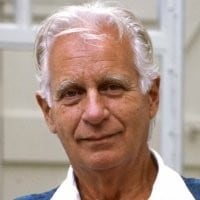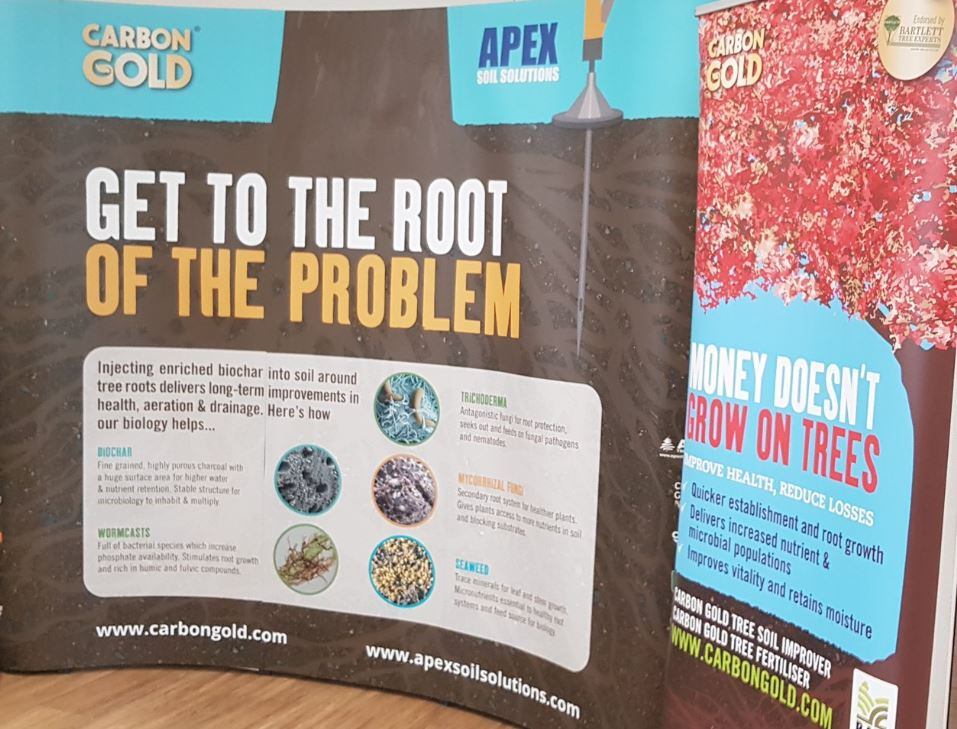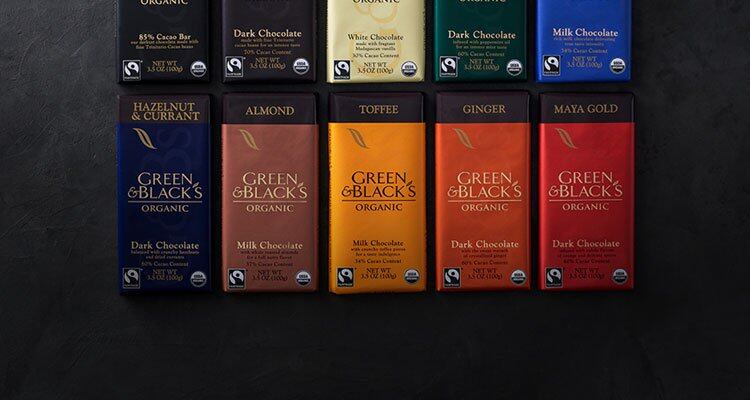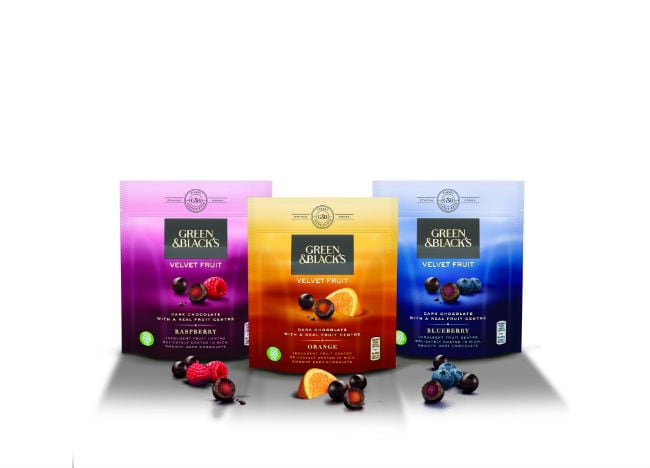Here in an exclusive interview with Craig Sams, the former co-founder of Green & Black's chocolate talks about his views on healthy eating, the sugar tax and plastic packaging waste and what projects he is currently working on.
Whole Earth Food

Sams will be taking part in a panel discussion on Sunday, October 28, 11am, at Amorevore Food & Arts Festival (Ibiza, October 26-28) with his brother Greg and Rory Spowers, creative director, Tyringham Initiative. Spowers is an ecological writer, campaigner and filmmaker who recently worked with BBC presenter Bruce Parry on the feature film Tawai.
The trio will talk about the rise of healthy eating consumption from the late 60s when Sams and his brother launched a macrobiotic restaurant called Seed in London in 1967, before going on to sell brown rice and macrobiotic foods under the Whole Earth Food brand in 1970, expanding into peanut butter and jams, and other products.
“We introduced novel foods at a time when no-one had heard of them, promoting the health benefits of brown rice, miso soup, tamari and edible seaweed,” said Sams.
“It blew peoples’ minds in the late 60s and early 70s because it was so different to what they had known before but now everyone can buy them as they have become mainstream products, but at the time if you wanted miso soup there was only place you could go to and that was our restaurant in London.
“Our session at Amorevore will be revisiting the health food trend then and now, capturing the mood at the time and how it has evolved and how organic foods came into the picture.”
Sams says he is still an ‘honorary president’ at Green & Black’s, which he co-founded with his wife, Josephine Fairley in 1991, but he doesn’t have a lot to do with the company anymore. It was sold to Cadbury’s in 2005 before being acquired by Mondelēz, formerly Kraft Foods in 2010.
“We sold it when Cadbury bought it. We still have a relationship with the company and I periodically write to them because I have the title of president, an honorary title. My wife is a motivational speaker who continues to share the inspirational story of Green & Black’s,” he added.
Zen Buddhism
Sams said when he started his business in 1967 it was based on macrobiotic principles driven by an oriental philosophy from Japan, which suggests life is a balance between yin and yang elements, a diet fixed on ideas about types of food drawn from Zen Buddhism.
“Zen macrobiotics was a small but growing movement mainly in France and the US at the time as well as Japan. I registered the trademark Yin and Yang because macrobiotics was driven by this,” he said.
“We thought everyone would be into it, and we had a killer brand and opened a shop, a restaurant and health food shop, then other people started doing it.
“The whole thing gathered momentum in the 70s but I still can’t believe the organic market share is still as small as it is today. The big change is carbon pricing. As this starts to come down organic food will become cheaper. There is always going to be interest in it but it’s a generational thing.
“You’ve got people now who have grown up eating healthily and having kids. Even if they don’t have a healthy eating background they buy organic milk for their baby and that’s their ‘toehold’ and they become more aware of environmental issues around them. Before they know it, they’re buying organic tea, coffee then bread.
“The other big trend is veganism and how many people are consciously blocking out animal products. There has also been a lot of media coverage regarding the trend of vegan bodybuilders and athletes due to the stamina it provides.”
Sams added he is not an advocate of the UK sugar tax on sugary drinks and thinks it would make more sense to put a tax on white breads and buns for example.
He also said: “We’ve stuck with plastic packaging and we are sensitive to the issue of plastic waste but we have to find a system of disposing plastic waste responsibly or turning it into fuel.”
One example is Bin2Barrel, a Dutch company founded in 2012 by waste management entrepreneurs Floris Geeris and Paul Harkema, which wants to use previously unrecyclable plastic to create fuel for diesel powered cargo ships.
Thanks to a partnership with the Port of Amsterdam and a grant from the Dutch government, Bin2Barrel could begin operations at the end of this year, as the first of four ‘plastic to fuel’ factories to be built near the port, where an estimated 35,000 tonnes of waste will be converted into 30 million litres of fuel.
Sams applauds schemes like this and believes by converting waste to fuel, plastics get a new life and it doesn’t enter the environment as trash.
Gusto Cola
The entrepreneur’s latest project is Gusto Cola producing an organic, Fairtrade, low calorie cola, made from cola nuts, organic lemon juice (instead of phosphoric acid), cane sugar, stevia leaf extract, and agave inulin.
Sams said the range has expanded from Gusto Original launched in 1990, a 100% natural energy drink, powered by Amazon guarana, African cola nut and 14 Chinese herbs for strength, focus and wellbeing, to seven drinks including; Gusto Real Cola, Gusto Naturally Slim Cola, Gusto Lemon Energy, Gusto Real Cherry Cola, Gusto Fiery Ginger with Chipotle, and Gusto Sicilian Blood Orange with plans to release an ouzo and lemon flavor at Christmas.
It is also increasing its distribution partners and has seen a lot of interest from Holland, Singapore and Japan.
“There has been a lot of interest in Gusto in Singapore and the Gulf States because it’s an alcohol-free drink. We also have a presence in Scandinavia and Holland, which is ironic because we are available in supermarkets in Singapore but not all the supermarket chains across Britain,” added Sams.
“The organic soft drinks have a low glycemic index because of the way we sweeten them and the beverages are just beginning to gain traction now, sourced from Fairtrade ingredients, sold in glass bottles and cans.”

At the show, Sams is also promoting Carbon Gold biochar in the agricultural sector, a form of charcoal, which is pesticide-free and injects carbon back into the soil, making it fertile once again, reversing the damage brought on by conventional farming.
Carbon Gold currently supplies biodynamic farmers Frank de Koning and Poldervaart in the Netherlands who use the product to grow tomato seeds. It also supplies non-organic tomato growers and is carrying out trials in vineyards in Switzerland and Italy.
Sams is partnering with Christer Söderberg, co-founder, Circle Carbon, a biochar-based social enterprise in Mallorca, which is developing products that restore and regenerate soils, and produce renewable energy, sequester carbon, and promote a circular economy, taking to the stage to discuss the topic on Saturday, October 27, from 4:30pm-5:30pm, Amorevore.
“The Carbon Gold business is gathering momentum now, but it has taken time. We recently shipped 70 tonnes of biochar to Oman, and have a lot of interest from clients in the Middle East, where they have dry, exhausted soils. Our product is a fast track way to regenerate the soil,” said Sams.
“Christer is setting up an organic vegetable organisation to supply hotels and local communities as part of the Circle Carbon initiative to restore degraded soil in Mallorca and is looking for more farmers to join the cause.
“Ibiza for example, switched to chemical fertilisers 50 years ago but now the island has a major almond tree crisis. The more fungicide you spray the more you kill the trees.
“When you add biochar to something it somehow magically excretes bad bacteria and restores good bacteria. When you add it to soil it provides a haven for beneficial bacteria and protects it from predators and mites. Biochar becomes part of the plant’s immune system fighting off pathogenic diseases and taking in vital nutrients that the plant would otherwise be deficient in, meaning you use less fertiliser.
“Thanks to increased moisture retention, it locks on to minerals that would otherwise wash out of the soil. It can soak up heavy metals for example and is ideal for cocoa farmers tackling cadmium."
Amorevore is hosting a session entitled ‘Ibiza’s Dying Almond Trees’, on Friday October 26, from 3:30pm-4pm.
Host Almendros de Ibiza is an interactive art installation to raise awareness of Ibiza’s dying almond trees and distressed nature and wants to raise funds to improve the current situation. Watch the video here.


